Enhancing vocabulary Building Vocabulary Worksheets for 6-Year-Olds
5 filtered results
-
From - To
Discover our engaging vocabulary building worksheets designed specifically for 6-year-olds! These interactive resources help young learners expand their word knowledge through fun and age-appropriate activities. Each worksheet is curated to enhance reading comprehension, boost language skills, and foster a love of learning. Our versatile exercises include matching games, word searches, fill-in-the-blanks, and picture association tasks that keep children motivated and excited about enhancing their vocabulary. Ideal for classroom use or at-home learning, our materials support diverse learning styles and encourage confidence in language usage. Empower your child’s communication skills today with our creative vocabulary building worksheets!
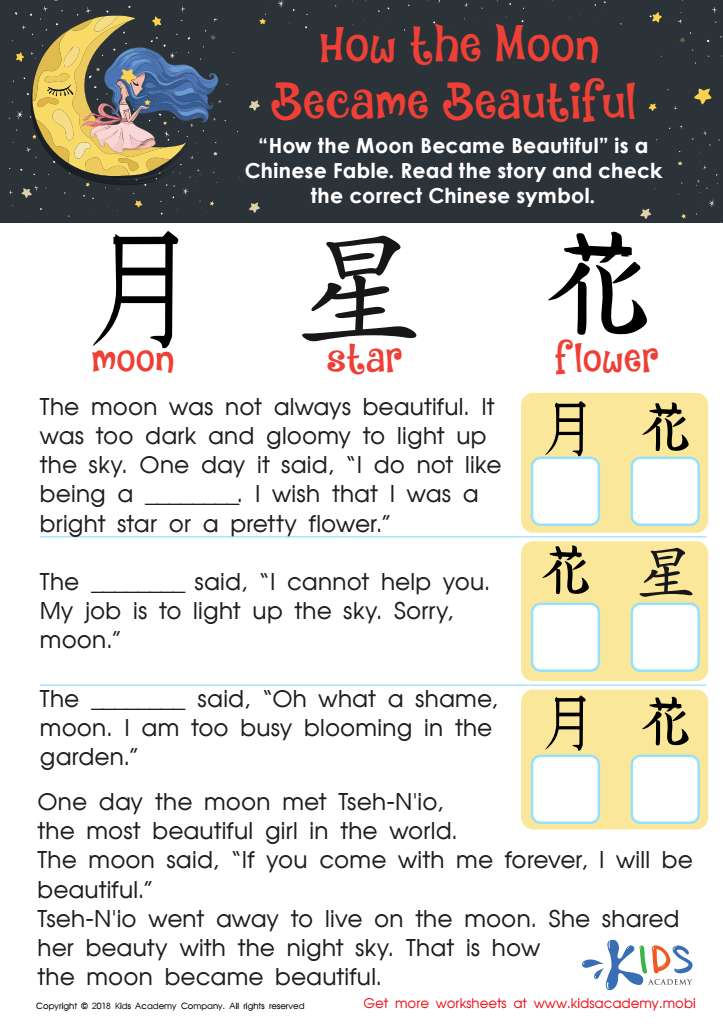

How the Moon Became Beautiful Worksheet
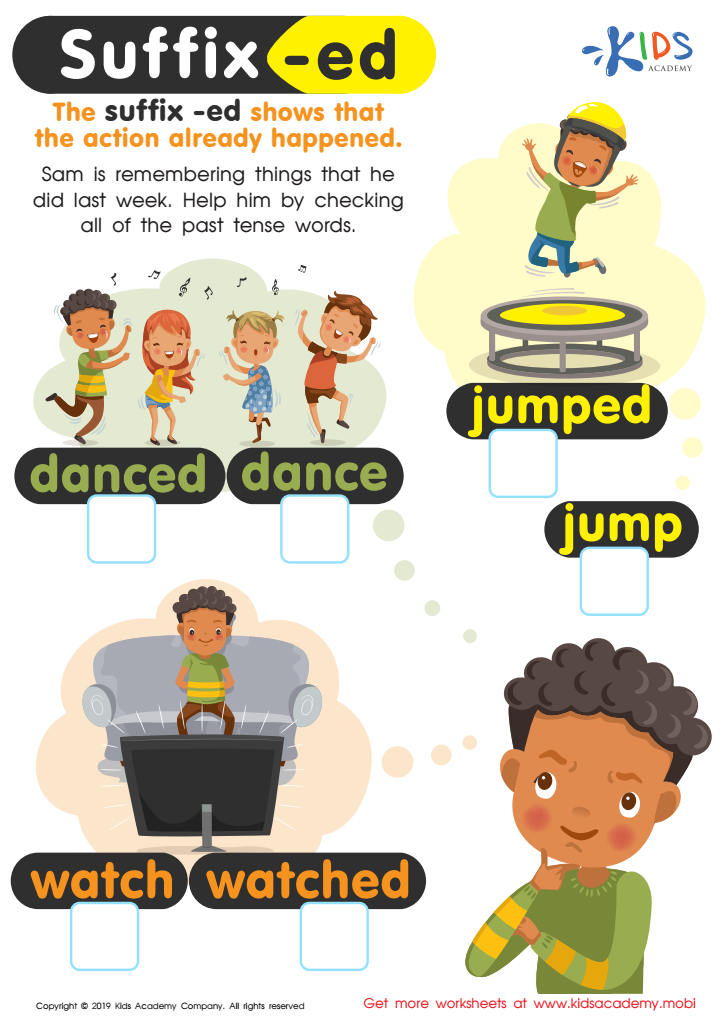

Suffix-ed Worksheet
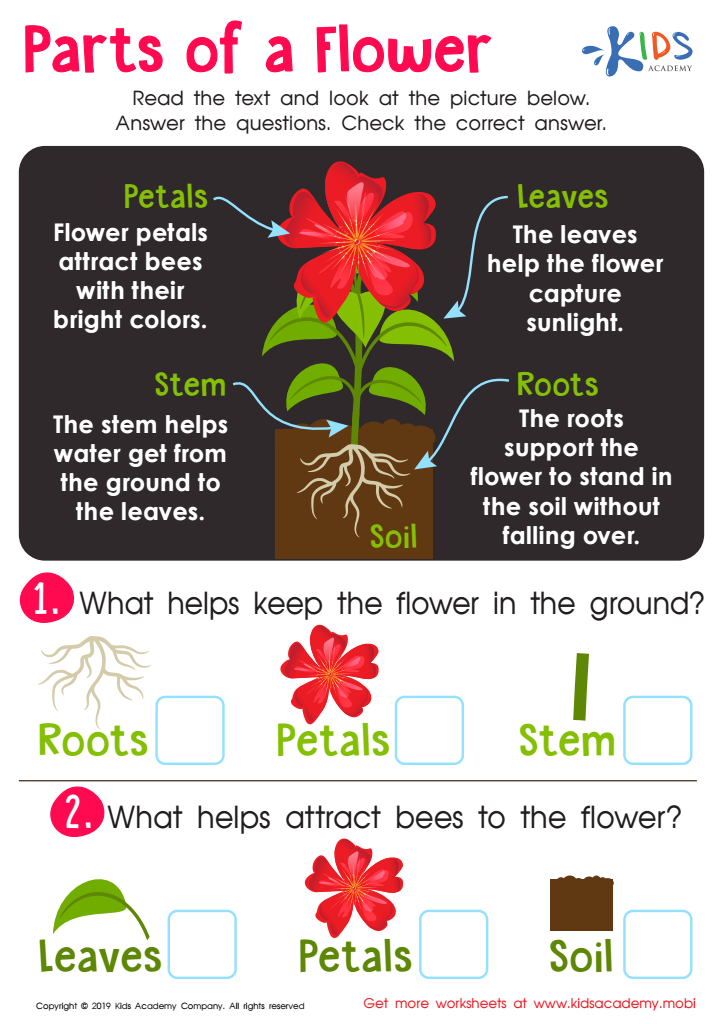

Parts of Flower Worksheet
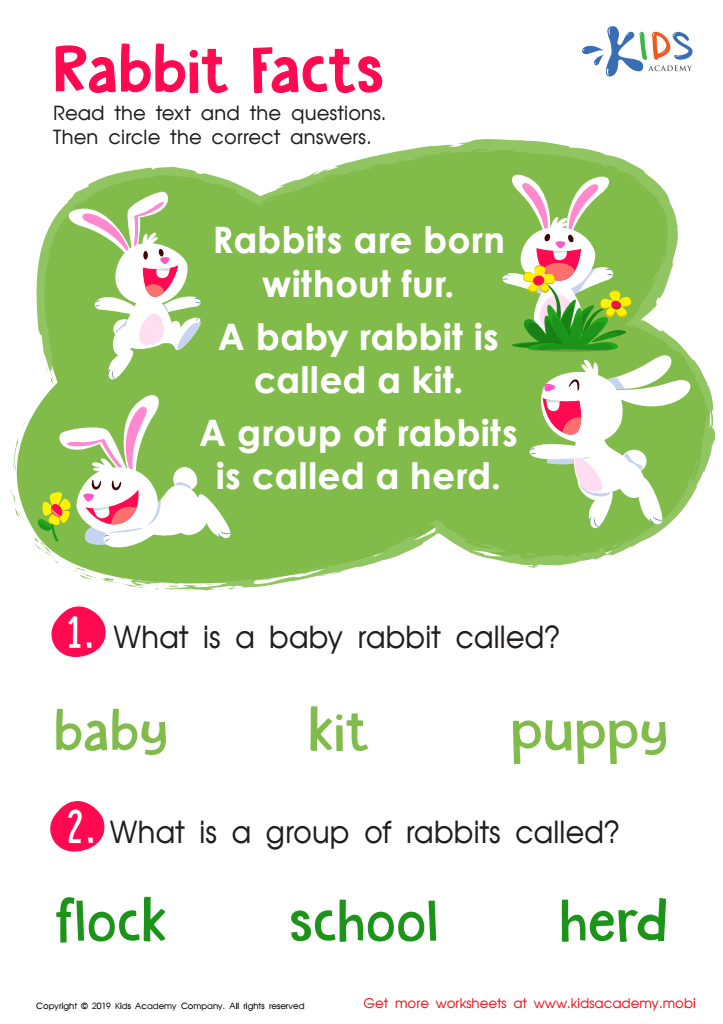

Rabbit Facts Worksheet
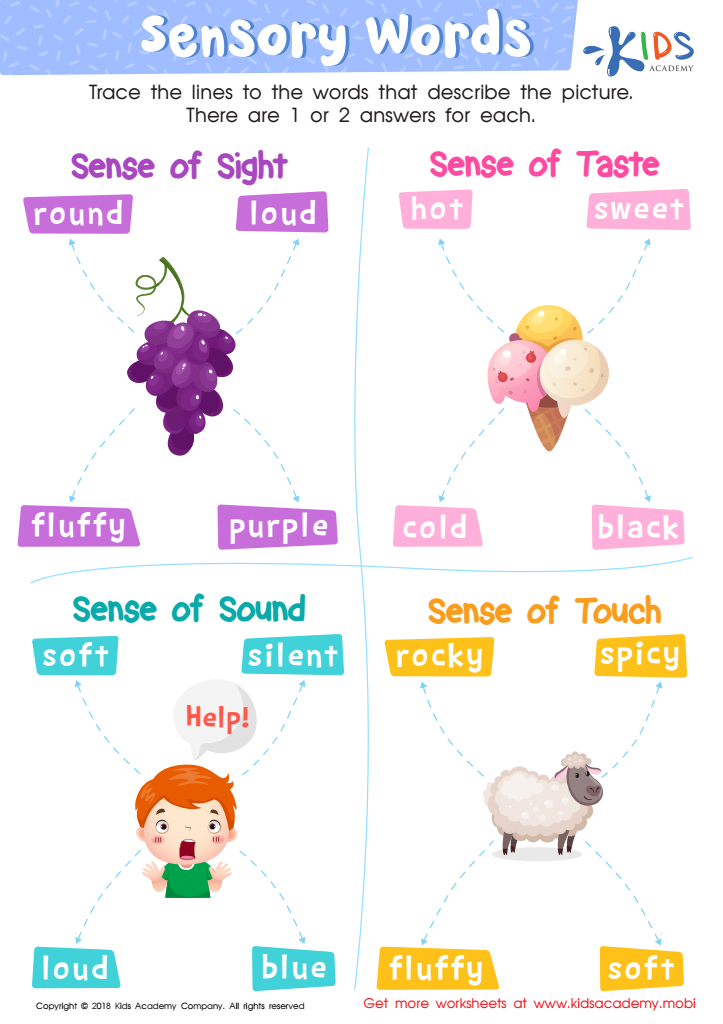

Sensory Words Worksheet
Enhancing and building vocabulary in 6-year-olds is vital for their cognitive and social development. At this age, children are rapidly expanding their language skills which directly impacts their reading and writing abilities. A strong vocabulary forms the foundation for comprehension, allowing young learners to understand stories, follow instructions, and communicate effectively. When children possess a rich vocabulary, they can express their thoughts and emotions with clarity, fostering better relationships with peers and adults.
Moreover, a robust vocabulary boosts academic success across all subjects, as many concepts are embedded in language. Students with a wider range of words can engage more actively during classroom discussions and develop critical thinking skills, as they can articulate their ideas more effectively. Additionally, early vocabulary enrichment can inspire a lifelong love for reading, encouraging children to explore new worlds through books.
Parents and teachers play a crucial role in this developmental aspect by incorporating diverse language experiences. This can be achieved through reading together, engaging in conversations, and introducing new words in playful contexts. By prioritizing vocabulary building, adults can help shape confident communicators, fostering a love for learning that will benefit children throughout their educational journey and beyond.

 Assign to My Students
Assign to My Students































